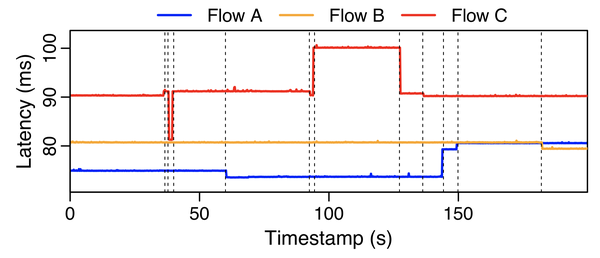ASPLOS ’21 will feature Alireza’s presentation of our paper titled “PacketMill: Toward Per-Core 100-Gbps Networking”. This is joint work with Alireza Farshin, Tom Barbette, Amir Roozbeh, Gerald Q. Maguire Jr., and Dejan Kostić.
The full abstract (with the video and more resources below):
We present PacketMill , a system for optimizing software packet processing, which (i) introduces a new model to effjciently manage packet metadata and (ii) employs code-optimization techniques to better utilize commodity hardware. PacketMill grinds the whole packet processing stack, from the high-level network function confjguration fjle to the low-level userspace network (specifjcally DPDK) drivers, to mitigate ineffjciencies and produce a customized binary for a given network function. Our evaluation results show that PacketMill increases throughput (up to 36.4Gbps – 70%) & reduces latency (up to 101µs – 28%) and enables nontrivial packet processing (e.g., router) at ≈100Gbps , when new packets arrive > 10 × faster than main memory access times, while using only one processing core
https://play.kth.se/media/PacketMillA+Toward+Per-Core+100-Gbps+Networking/0_7rvtusfo
PacketMill Webpage: https://packetmill.io/
PacketMill Paper: https://packetmill.io/docs/packetmill-asplos21.pdf
PacketMill source code: https://github.com/aliireza/packetmill
PacketMill Slides with English transcripts: https://people.kth.se/~farshin/documents/packetmill-asplos21-slides.pdf

